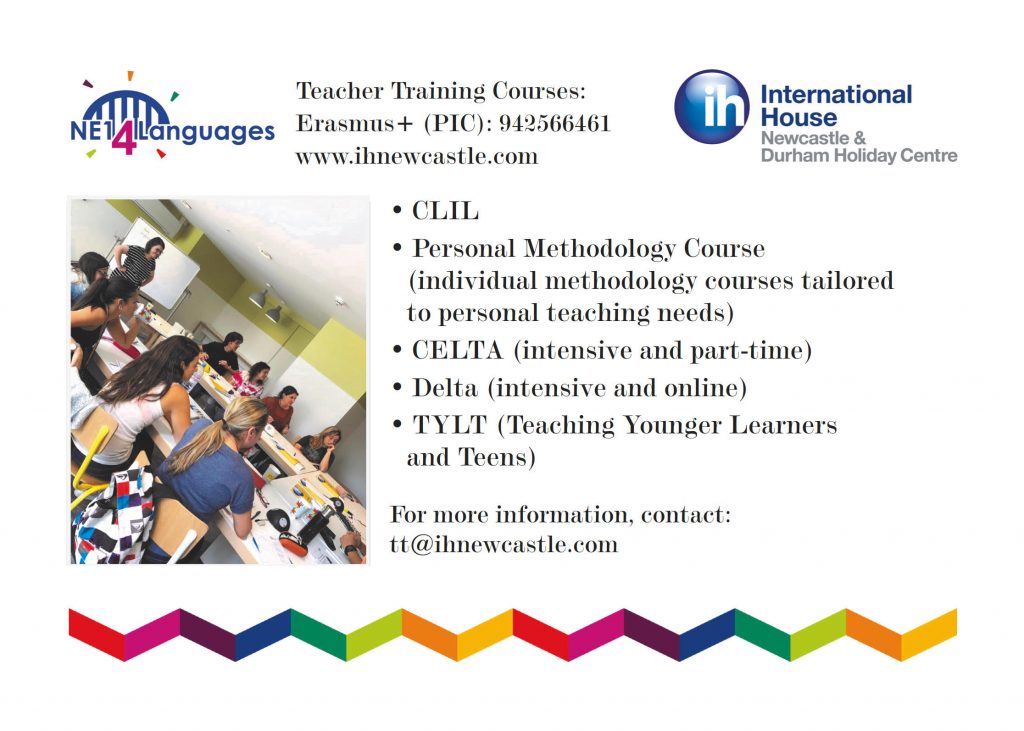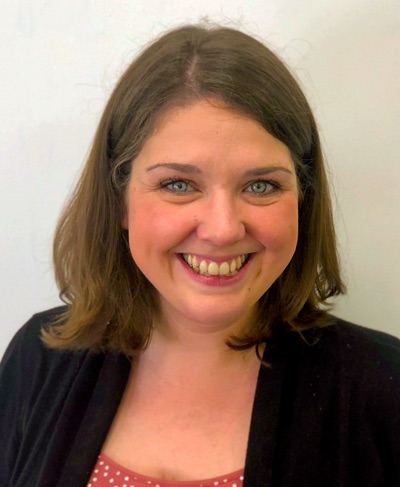Rachel Halsall, Head of Training at NE14 Languages / IH Newcastle, explains to Melanie Butler why the personal touch is key for trainers
How did you first get into teacher training?
I started off doing developmental observations and assisted lesson planning in my roles as senior teacher and Young Learner Coordinator, here at IH Newcastle, where I’ve been for nine years now. This led on naturally to training on Celta, Delta and other courses, and now I’m Head of Teacher Training.
What’s the best thing about being a trainer?
The way observing and thinking lessons through with others constantly refreshes and inspires your own teaching. Teaching is essential for trainers, but planning and running courses can take you out of the classroom. So I try to make the most of the opportunities I get.
At IH Newcastle you design special, personal methodology courses. PMCs you call them. How do they work?
The beauty of the PMCs is how tailored they are. We have a bank of material but we never give the same input twice. Take a popular session like ‘Motivation’. With a Japanese art teacher, who teaches teenagers, we used the session to discuss communicative methods for rewarding students. With a Dutch literature teacher in adult education we focussed on consciousness-raising of useful lexis. And for a Swiss English language teacher working with special needs children, we did practical demonstrations of communicative flash card games.
You offer qualifications like CELTA as well as methodology courses. How are they similar?
IH Newcastle is referred to as a ‘demand high’ centre by Cambridge assessors, because we push our Celta and Delta trainees to use activities that reflect real life communication. We take this principle into other courses – getting trainees to think about applying communicative theories and approaches in their classrooms. CLIL trainees are specialists in their subject, PMCs are experts in their schools – we add the language knowledge and communicative ideas.
What are the three most important things you have learned from your trainees?
First, never give up on learners. Trainees tell inspiring stories about ‘difficult’ learners who suddenly produce something amazing. They teach me to keep going, even when a student doesn’t appear to be progressing.
Second, never assume anything. Even if you think you know what’s going on with your trainees, you need to ask. You may be wrong, and they really appreciate being asked. The personal touch is necessary, especially in a world of online training.
Finally, remember you’re only human. I once took a day off Celta with my critically ill cat (who recovered!). I was convinced the trainees wouldn’t take me seriously when I returned. But, everyone was genuinely concerned, and said it was easier to take my feedback after they saw I also had needs. Teaching is a ‘people business,’ and trainers are people, too.






